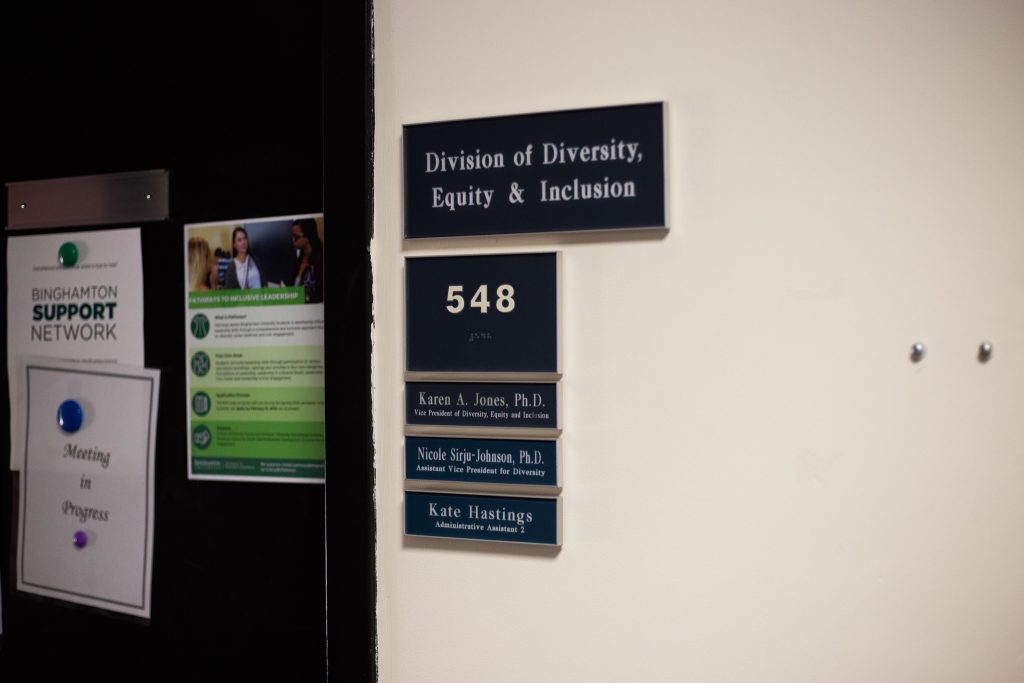The Division of Diversity, Equity and Inclusion (DEI) has welcomed Leonel Diaz as its new director of intercultural affairs.
Diaz’s interest in Binghamton University began when he attended the Men of Color Summit in 2022, where he met staff members in the division, embarked on a self-guided tour and learned about University-led projects and programs. He earned a master’s degree in postsecondary administration and student affairs from the University of Southern California and his PhD in organizational development and learning sciences from the University of New Mexico. Diaz worked closely with students in various departments, including residential life, academic support, research and leadership development.
“[Diaz] came to us with a wealth of experience in higher [education] and diversity-related work,” Karen Jones, the University’s vice president for DEI, wrote in an email. “He was selected, as he was viewed as an excellent collaborator to help with the continued growth of our division. We are so fortunate to have him join us.”
Born in Compton, California to migrant parents from Yucatán, Mexico, Diaz said he grew up with a sense of pride in his Mayan heritage. Although he came from a family that prioritized education, struggles in school inspired Diaz to work in this field. He credits college mentors with supporting his development and inspiring him to “pay it forward,” helping students like himself succeed in higher education.
“My current goal for the Q Center and Multicultural Resource Center (MRC) is to increase student participation,” Diaz said to BingUNews. “To do this, we have to begin with understanding what is behind the reluctance to participate. Another goal is to focus on the intersectionality of student identity through our programs. Intersectionality provides a lens to best understand how the various pieces of our identity shape our actions and knowledge.”
BU’s Division of DEI was created from the Road Map initiative and celebrates human diversity on campus through diversity and inclusion initiatives. Related affinity groups include alumni of color and LGBTQ+ alumni networks. It is comprised of the divisional vice president, the affirmative action office, the UDiversity Educational Institute, the academic and divisional diversity officers, the MRC and the Q Center.
He highlighted “migration, mental health, veteran transition to civilian life, underserved populations, universal design for learning and teaching and environmental protections” as causes he is passionate about. Diaz addressed potential future challenges, explaining that society’s reaction to world events can be unpredictable.
“The recent pandemic impacted our youth in ways we are just beginning to understand, such as their communication preferences and digital literacy,” Diaz said. “Communication, conflict resolution, problem-solving, active listening, leadership and other skills remain important in student development.”



